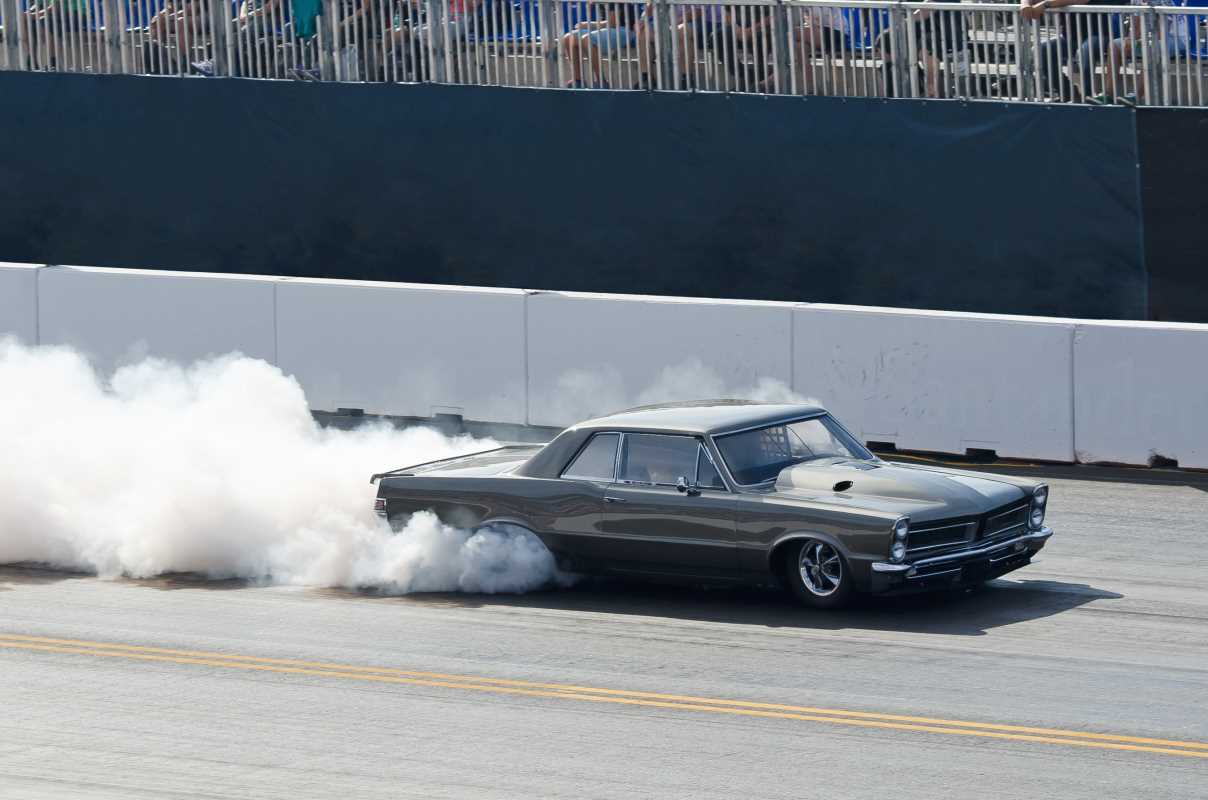The automotive landscape has evolved dramatically over the past century, with numerous iconic American car brands rising to prominence and later fading into history. While some of these brands were pioneers in design, technology, and performance, shifting market trends, economic challenges, and corporate decisions led to their ultimate demise. This list revisits some once-prominent American car brands that have driven into the sunset, exploring their histories and examining the reasons why they're no longer with us.
Oldsmobile
Founded in 1897 by Ransom E. Olds, Oldsmobile was one of the oldest car manufacturers in the world and was known for its innovative spirit. The brand is particularly famous for introducing the Hydra-Matic, the first fully automatic transmission, in 1940. Over the years, Oldsmobile became synonymous with reliability and innovation, offering models that appealed to both everyday drivers and those seeking luxury. However, by the 1990s, Oldsmobile's image had become somewhat outdated, and the brand struggled to attract younger buyers. Parent company General Motors (GM) decided to phase out Oldsmobile in 2004 after declining sales and an inability to differentiate the brand from GM's other offerings, despite efforts to revamp its product line.
- Founded: 1897
- Discontinued: 2004
- Notable Models: Oldsmobile Cutlass, Oldsmobile 442
- Reason for Discontinuation: Inability to attract younger buyers and internal competition within GM
Pontiac
Established in 1926, Pontiac became known for producing exciting, performance-oriented vehicles, particularly in the muscle car era. The brand's Pontiac GTO, introduced in 1964, is often credited with starting the muscle car craze in America, cementing Pontiac's reputation as a manufacturer of high-performance vehicles. Other models like the Firebird Trans Am and Grand Prix became cultural icons. However, by the 2000s, Pontiac had lost its focus and identity, struggling to differentiate itself within GM's portfolio. The financial troubles that hit GM during the 2008 economic crisis led to the decision to discontinue Pontiac in 2010, as part of GM's bankruptcy restructuring efforts.
- Founded: 1926
- Discontinued: 2010
- Iconic Model: Pontiac GTO, Firebird Trans Am
- Reason for Discontinuation: Financial struggles within GM and declining sales
Plymouth
Introduced by Chrysler in 1928 as an affordable, entry-level brand, Plymouth was initially successful, offering reliable vehicles at accessible prices. The brand played a pivotal role in Chrysler’s growth during the mid-20th century, with models like the Plymouth Barracuda gaining a loyal following. However, as Chrysler's product lineup expanded, Plymouth struggled to stand out, often overlapping with Chrysler's Dodge and Chrysler-branded vehicles. By the 1990s, Plymouth's market share had eroded, and in 2001, Chrysler decided to discontinue the brand due to declining sales and brand identity issues.
- Founded: 1928
- Discontinued: 2001
- Iconic Model: Plymouth Barracuda, Plymouth Road Runner
- Reason for Discontinuation: Brand overlap within Chrysler’s portfolio and declining sales
Mercury
Mercury, established by Ford in 1938, was designed to fill the gap between the mainstream Ford brand and the luxury Lincoln division. For decades, Mercury enjoyed moderate success, offering more premium versions of Ford vehicles aimed at mid-range buyers. Popular models like the Mercury Cougar and Grand Marquis became staples of the brand. However, by the 2000s, Mercury's role within Ford's lineup became less clear, with most of its models being rebadged versions of Ford cars. With Ford shifting its focus to its core brands and SUVs, Mercury was officially discontinued in 2010.
- Founded: 1938
- Discontinued: 2010
- Notable Models: Mercury Cougar, Grand Marquis
- Reason for Discontinuation: Lack of brand differentiation and Ford's decision to streamline its offerings
Hummer
Known for its rugged, military-inspired SUVs, Hummer emerged as a civilian brand in the early 1990s after the popularity of the military HMMWV (Humvee). The brand's massive, gas-guzzling vehicles, like the Hummer H2, became symbols of excess and luxury during the early 2000s. However, as environmental concerns grew and fuel prices rose, Hummer faced increasing criticism for its poor fuel efficiency. GM attempted to sell the brand in 2010 but ultimately decided to shut it down as part of its restructuring.
- Founded: 1992 (civilian brand)
- Discontinued: 2010
- Iconic Model: Hummer H2, Hummer H3
- Reason for Discontinuation: Environmental concerns and declining demand for large SUVs
Saturn
Launched in 1985 as a "different kind of car company," Saturn was GM’s response to the growing competition from economical Japanese imports. Saturn gained a strong following with its no-haggle pricing and customer-centric approach. Early models, like the Saturn SL and Saturn Ion, were known for their affordability and fuel efficiency. However, despite initial success, Saturn's product lineup became stale, and GM's inability to keep the brand competitive led to its closure in 2010 during GM’s bankruptcy restructuring.
- Founded: 1985
- Discontinued: 2010
- Notable Models: Saturn SL, Saturn Vue
- Reason for Discontinuation: Inability to maintain competitive edge and GM’s financial troubles
Scion
Introduced by Toyota in 2003, Scion was aimed at younger, trend-conscious consumers. Scion offered unique, affordable models like the Scion xB and Scion tC, which found a loyal following among millennials. However, as Toyota's own lineup evolved, many Scion models began overlapping with Toyota's offerings, leading to brand confusion. In 2016, Toyota decided to fold Scion back into the main Toyota brand.
- Founded: 2003
- Discontinued: 2016
- Notable Models: Scion xB, Scion tC
- Reason for Discontinuation: Overlapping models within Toyota’s lineup
Each of these defunct car brands tells a story of innovation, changing market dynamics, and the harsh realities of the automotive industry. While these brands no longer exist, their influence on car design, engineering, and culture remains. Their legacies are preserved in the models they produced, many of which remain beloved by car enthusiasts and collectors today. These brands serve as a reminder of the ever-evolving nature of the auto industry and the importance of adapting to consumer needs, economic conditions, and environmental concerns.







